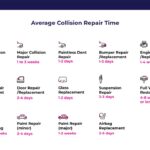Facing the possibility of your car being repossessed can be stressful. Many people facing financial hardship worry, “Can they repo my car right now?” It’s crucial to understand your rights and the financial implications that follow vehicle repossession. Even after your car is taken, your financial obligations might not be over. Here’s what you need to know about car repossession and your responsibilities.
Understanding Repossession Fees
When your lender repossesses your vehicle, they typically incur costs for picking it up and storing it. These repossession fees are usually passed on to you. However, these fees must be “reasonable.” What is considered reasonable is often determined by courts and can vary depending on factors like the type of vehicle, the repossession method, and the location of repossession. You have the right to request a detailed breakdown of all repossession costs from your lender to ensure transparency and fairness.
Deficiency Balance and Surplus After Vehicle Sale
After repossession, the lender will usually sell your car. This sale price is used to offset the outstanding loan amount, but it doesn’t always cover the full balance. If the sale price, after deducting repossession costs, is less than what you still owe on the loan, you will be responsible for paying the “deficiency balance.” This deficiency balance is the difference between your remaining loan amount plus repossession fees and the car’s sale price.
For example, if you still owe $10,000 on your car loan and it sells for $7,500 after repossession, you would owe a deficiency of $2,500, in addition to the repossession fees. Failure to pay this balance can lead the lender to involve debt collectors to recover the amount.
Conversely, if your car sells for more than what you owe, including repossession fees, you are entitled to receive the surplus. For instance, using the same example, if the car sold for $12,000, you would be entitled to the $2,000 surplus after your loan and fees are covered.
It’s important to note that lenders are legally required to sell the repossessed vehicle in a “commercially reasonable manner.” If you believe the sale price was unreasonably low, it is advisable to consult with an attorney to explore your options.
Know Your Rights and Seek Advice
Beyond these federal guidelines, you also have rights under your state laws regarding vehicle repossession. To fully understand your rights and obligations, it’s recommended to reach out to your state attorney general or your state consumer protection office. They can provide specific information about repossession laws in your state. Additionally, seeking advice from a private attorney or your local legal services office can offer personalized guidance based on your situation and ensure your rights are protected throughout the repossession process.

